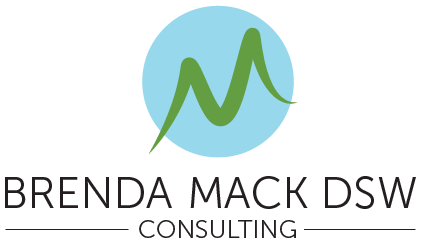In the second year of my undergraduate studies, I struggled deciding on a major. During a conversation with a good friend, she suggested I take a social work class. She knew I was interested in helping others and fighting against injustice. Thankfully, I took her advice and never looked back. A surreal feeling arises when reflecting on my role as a social worker with over 30 years of experience. Thirty years…wow! Even though there are difficult times in this profession, it truly is my calling.
One of the things I like most about social work is the variety of jobs, roles, and responsibilities it offers. I’ve spent most of my career in the field of rural mental health as a therapist, supervisor, program director, and educator. This blog focuses on a component of supervision that addresses the health and wellbeing of supervisees. As a mentor and guide for social workers and other mental health providers I prioritize their wellness and resilience.
Social work supervision can be complex and challenging yet rewarding. On many occasions, listening to supervisees describe difficult situations of their clients, such as child abuse, intimate partner violence, or suicide, I observed the emotional toll it took on them. This led me to develop some of the core aspects of my supervisory approach including being trustworthy, empathetic, compassionate, supportive and an engaged listener. I do my best to create a brave space for social workers and other providers to talk about their stress and symptoms of burnout. Through a lens of mentorship and guidance, I offered ideas, strategies, and solutions for supervisees to consider. Sometimes, that meant advocating with the agency or organization on their behalf to create policies and practices that focused on the wellness of employees.
In my supervisory role, I sought information and resources to help me address the symptoms of stress and burnout among my supervisees. Unfortunately, they were scarce. I was disheartened because I could not find a supervisory framework to address stress, burnout, compassion fatigue, and secondary trauma among social workers and other helping professionals. This type of resource would have been incredibly helpful as I walked alongside supervisees who experienced distress and emotional pain.
As a result of this experience and the sheer lack of resources uncovered by my literature review addressing stress, burnout, self-collaborative-organizational care, and resiliency among social workers this has become the primary focus of my research and scholarship. During my doctoral program at the University of St. Thomas, located in St. Paul, MN, I was driven to create the strengths-based, culturally-responsive Resiliency-Focused Supervision Model (RFSM) ©. This was informed and developed by my study findings, existing literature including Lee and Miller’s Self-Care Framework (2013), and my professional journey.
I invite supervisors, supervisees, organizational leaders, educators, and students to consider the RFSM as an additional tool for their professional toolkit. Specifically, the RFSM’s 3 domain areas include: 1) structural/environmental, 2) relational, 3) work/life self-care. Supervisors can use the model as a stand-alone option or in conjunction with best-practice frameworks. The RFSM is meant to help supervisors initiate and guide conversations during individual and group supervision sessions.
As a quick summary, here is a brief overview of each of the three RSFM domain areas. The structural/environmental components focus on the format and type of supervision provided, the impact of setting and space, longevity of the social worker in the profession, and the importance of cultural-responsiveness in addressing the wellness and well-being of supervisees. The relational component calls attention to the interpersonal connections between supervisors and supervisees in addressing symptoms of negative stress and burnout. In addition, supportive professional and personal relationships among supervisees is included as a means to increase resilience. Finally, the work/life self-care domain includes 18 components to consider when a social workers develop their wellness plans. Supervisors can help guide conversations that prompt supervisees to create and implement them.
A good place to start may be to have a supervisee complete a stress screener, burnout assessment, and the Professional Quality of Life (ProQOL) instrument developed by B. Hudnall Stamm (2009). An example of the stress screener and burnout assessment can be found on the University of Buffalo School of Social Work Self-Care Toolkit website at: https://socialwork.buffalo.edu/resources/self-care-starter-kit/self-care-assessments-exercises/checklists-and-measures.html and the ProQol can be found here, https://proqol.org/proqol-1 . Having supervisees complete one or more of these assessments can help raise their awareness which may have an impact on the development and implementation of their work/life self-care plan. Supervisors are invited to use the RFSM in a way that works best for them to help supervisees thrive in their roles. If you are interested in reading more about the RFSM, check out this article published in 2021 in the Advances in Social Work journal, https://journals.iupui.edu/index.php/advancesinsocialwork/article/view/23897 .
Today’s focus on the RFSM highlights the critical role that supervisors play in addressing stress, burnout, secondary trauma, self-collaborative-organizational care, and resilience among supervisees. Always remember that the impact you can make on the wellness and well-being of those you help guide and mentor can last a lifetime. I invite you to consider using the RFSM as a tool in your supervisory toolbox. Looking back at the many in-person and online presentations and trainings on the RFSM, over the past four years, sparks joy for me knowing that others are excited about using the model to guide their supervisory work. If you are interested in scheduling a training or presentation, contact me at info@brendamackdsw.org . I hope we can work together on creating more joy!
Be bold, be well ~ Dr. Brenda
